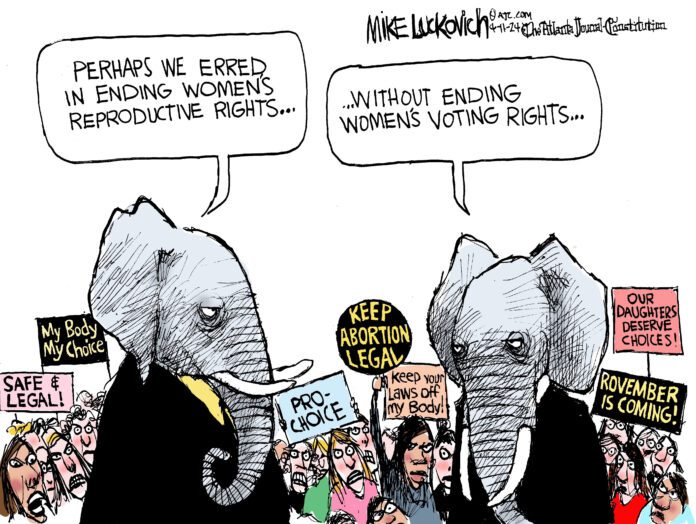After elections earlier this month, Oklahoma Republicans might want to consider the wisdom of the aphorism often credited to Mark Twain: “History doesn’t repeat itself, but it often rhymes.”
There were no partisan races on the ballot, of course, but some of the current GOP’s animating principles certainly were.
And voters soundly rejected them – even though many of those who cast ballots undoubtedly have been reliable Republican voters.
Think about it: Three hard-right culture warriors who’d make state Superintendent Ryan Walters proud were defeated in bids to serve on the Tulsa School Board. So was a Walters-esque Christian nationalist candidate seeking a seat on Stillwater’s school board. And in Enid, a neo-Nazi sympathizer was forced off the City Council in a recall election.
A small sample, yes, but it gives a glimpse into the minds of a broader swath of Oklahoma voters than the ideologues and zealots who routinely dominate low turnout GOP primaries.
What April 2 voters unequivocally told Republicans is they’re headed in the wrong direction when they usurp individual liberties [think: reproductive rights] and undermine local control [think: public education].
How can we know they’re signaling disapproval with the GOP agenda? History is our guide.
The issues are different and so are the players, but the GOP stranglehold on state government is not unlike much of the 20th century, when Democrats dominated – and oft-governed with similarly excessive hubris.
Slowly, but surely over several decades Republicans took advantage of that arrogance to win over a voting populace that until then had sooner been dead than Red. Too many Democratic leaders, however, couldn’t see the slow-moving train wreck unfolding. They’d been in charge of Oklahoma since statehood and couldn’t fathom it being any other way.
Until it wasn’t.
Thankfully, Oklahoma’s Supreme Court rightly rejected many of these as unconstitutional. But now legislative poohbahs are working overtime to turn the selection process for appellate judges into a wholly partisan exercise.
Oklahoma, by the way, is one of only seven states that still permits lazy, straight-ticket voting – a prime reason it ended up with the ethically-challenged Walters over the far-better-qualified Jena Nelson for superintendent.
History doesn’t repeat, but it rhymes? Yes, and just like Democrats before them, GOP leaders are missing the obvious warning signs – uber-confident their supermajorities always will be thus. How else to explain activists handing the keys to a rightwing ideologue like term-limited Sen. Nathan Dahm, recently elected state party chair?
Like Walters, Dahm is an inveterate Molotov cocktail-lobber on social media. Walters has proved himself uniquely unfit to administer a state agency; we shall see if Dahm can lead a reboot of an increasingly strident state Republican Party.
What April 2’s elections signal is voters are tiring of performance politics that “own the libs” on social media but do precious little to solve actual problems. It often takes more-casual voters longer to get angry enough to go to the polls and register their displeasure, but they almost always get there [see Oklahoma’s shift from D to R that began in the early ‘80s and completed in 2010].
Will Republicans heed history, elevating fewer extreme policies and candidacies in order to keep disaffected adherents from taking their checkbooks and votes elsewhere? Don’t bet on it.







